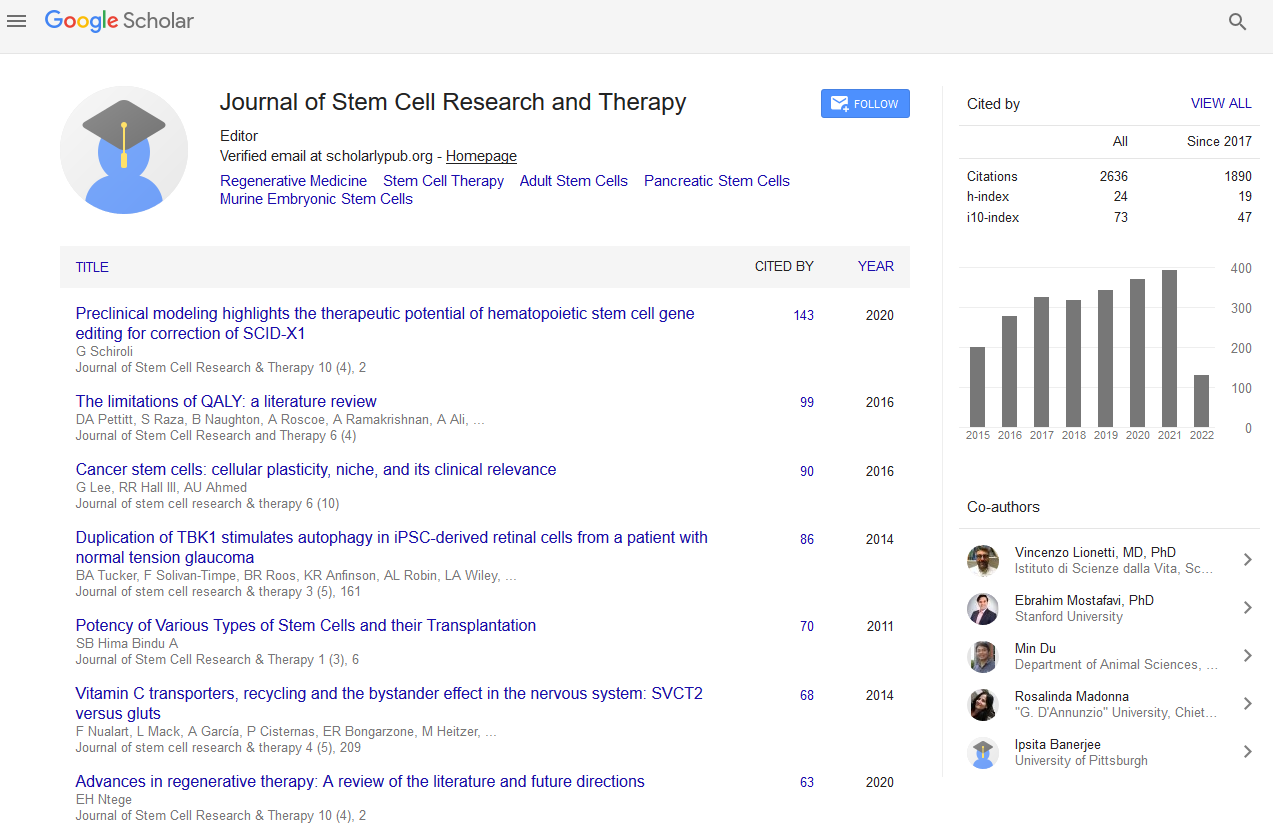Indexed In
- Open J Gate
- Genamics JournalSeek
- Academic Keys
- JournalTOCs
- China National Knowledge Infrastructure (CNKI)
- Ulrich's Periodicals Directory
- RefSeek
- Hamdard University
- EBSCO A-Z
- Directory of Abstract Indexing for Journals
- OCLC- WorldCat
- Publons
- Geneva Foundation for Medical Education and Research
- Euro Pub
- Google Scholar
Useful Links
Share This Page
Journal Flyer

Open Access Journals
- Agri and Aquaculture
- Biochemistry
- Bioinformatics & Systems Biology
- Business & Management
- Chemistry
- Clinical Sciences
- Engineering
- Food & Nutrition
- General Science
- Genetics & Molecular Biology
- Immunology & Microbiology
- Medical Sciences
- Neuroscience & Psychology
- Nursing & Health Care
- Pharmaceutical Sciences
Abstract
A Review of the Placenta and Trophoblast Induced Pluripotent Stem Cells in Autism Spectrum Disorder Research
Sona Jasani, Grace Tartaglia, Percy Luk Yeung and Chi-Wei Lu
Autism spectrum disorder (ASD) imparts a tremendous health burden with psychological, social, and economic implications. The biology of ASD is complex involving genetic, molecular, hormonal and immunologic factors however the convergence point of these various factors has not been identified as of yet. Limited evidence exists to suggest that the placenta may play such a governing role in ASD manifestation. The placenta is a neuroendocrine modulator by participating in the fetal hypothalamic pituitary gonadal (HPG) axis and also regulates the intrauterine environment mitigating fetal exposure to damaging factors to modulate the fetal stress response. Placental dysfunction has been associated with developmental abnormality and neuropsychiatric pathology adding to the biologic plausibility of the governing role the placenta may play in ASD development. By using current technology like induced pluripotent stem cells (iPSCs), a practical model system can be created to study ASD providing an alternative method to further research the placenta in ASD development


